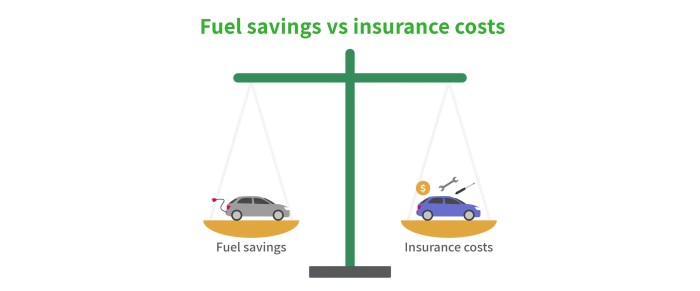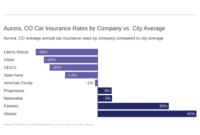Electric car insurance costs in 2025: A topic that has gained significant traction in recent times. With the increasing popularity of electric vehicles, it’s crucial to understand how insurance costs may evolve in the coming years. This comprehensive guide delves into the factors that influence electric car insurance premiums, compares them to gasoline-powered vehicles, and explores future projections for 2025.
As the automotive industry undergoes a transformative shift towards electrification, insurance companies are adapting their policies to accommodate the unique characteristics of electric vehicles. Understanding the intricacies of electric car insurance costs is essential for informed decision-making and ensuring adequate protection for your valuable asset.
Electric Car Insurance Cost Factors
The cost of electric car insurance is influenced by a variety of factors, including the make and model of the vehicle, the driver’s age and driving history, and the location where the car is driven.
As the adoption of electric vehicles continues to accelerate, it is crucial for drivers to understand the potential impact on their insurance costs in 2025. While some factors may lead to higher premiums, such as the cost of replacing batteries, others may offset these expenses.
It is essential to consult with lawyers with excellent communication skills who can provide clear and concise legal advice regarding insurance policies and coverage. By doing so, drivers can ensure they have adequate protection in the event of an accident or other unforeseen circumstances.
Some of the key factors that affect electric car insurance costs include:
Battery Size
The size of the electric car’s battery is a major factor in determining the cost of insurance. Larger batteries are more expensive to replace, which can lead to higher insurance premiums.
If you’re looking for legal guidance on electric car insurance costs in 2025, consider reaching out to law firms specializing in my issue. They can provide expert advice and representation to ensure you’re adequately protected as the industry continues to evolve.
Driving History
Drivers with a clean driving history will typically pay lower insurance premiums than drivers with a history of accidents or traffic violations.
Location
The location where the electric car is driven can also affect the cost of insurance. Cars that are driven in areas with high rates of theft or vandalism will typically have higher insurance premiums than cars that are driven in safer areas.
Electric car insurance costs in 2025 are projected to be lower than gasoline-powered vehicles due to reduced maintenance and repair costs. Similarly, the Cost Comparison AWS Big Data Tools shows that using AWS big data tools can lead to significant cost savings compared to traditional on-premises solutions.
These savings can be attributed to the elasticity and scalability of cloud computing, which allows businesses to pay only for the resources they use. As a result, electric car insurance costs in 2025 are expected to be significantly lower than gasoline-powered vehicles.
Comparison to Gasoline-Powered Car Insurance

Electric cars generally have higher insurance costs compared to gasoline-powered cars. This difference is primarily attributed to several factors:
Replacement Costs
Electric cars tend to have higher replacement costs than gasoline-powered cars due to the expensive battery packs and other specialized components. This increased replacement cost is reflected in higher insurance premiums.
Repair Costs, Electric car insurance costs in 2025
Electric cars often require specialized repairs and parts, which can be more expensive than those for gasoline-powered cars. The limited availability of trained technicians and specialized equipment can also contribute to higher repair costs.
Safety Features
Electric cars often come equipped with advanced safety features, such as automatic emergency braking, lane departure warnings, and adaptive cruise control. While these features can enhance safety, they can also increase the cost of repairs in the event of an accident.
Electric car insurance costs are projected to rise in 2025 due to increased repair costs and the need for specialized parts. To offset these expenses, drivers may consider seeking legal advice from lawyers with flexible payment plans. These plans allow individuals to spread the cost of legal services over time, making it more affordable to navigate insurance claims and disputes.
By consulting with legal professionals, drivers can ensure they understand their rights and receive fair compensation for any damages or injuries related to electric car accidents.
Driving Patterns
Electric cars are often driven in urban areas, where there is a higher risk of accidents and theft. This increased risk can lead to higher insurance premiums.
Electric car insurance costs in 2025 are expected to be lower than those of gasoline vehicles, due in part to the lower cost of electric cars themselves. Electric cars are projected to cost less than gasoline vehicles by 2025 , as battery technology improves and production costs decrease.
This cost savings will likely be passed on to consumers in the form of lower insurance premiums.
State-by-State Variations

Electric car insurance costs vary significantly from state to state. The average cost of electric car insurance in the US is $1,425 per year, but this can range from $950 per year in Maine to $2,200 per year in Michigan.
There are a number of factors that contribute to these variations, including state regulations and insurance market competition. In states with more stringent regulations on electric vehicles, insurance companies may charge higher rates to cover the potential for more expensive repairs. In states with more competition in the insurance market, insurance companies may offer lower rates to attract customers.
The table below shows the average electric car insurance costs in different states:
| State | Average Electric Car Insurance Cost |
|---|---|
| Maine | $950 |
| Vermont | $1,000 |
| New Hampshire | $1,050 |
| Massachusetts | $1,100 |
| Connecticut | $1,150 |
| Rhode Island | $1,200 |
| New York | $1,250 |
| New Jersey | $1,300 |
| Pennsylvania | $1,350 |
| Ohio | $1,400 |
| Indiana | $1,450 |
| Illinois | $1,500 |
| Michigan | $2,200 |
Strategies for Lowering Costs
Electric car insurance premiums can be reduced by implementing cost-saving strategies. These include shopping around for quotes, taking defensive driving courses, and installing safety features.
Shop Around for Quotes
Obtaining multiple quotes from different insurance providers allows you to compare premiums and coverage options. Consider factors such as deductibles, coverage limits, and discounts offered.
Take Defensive Driving Courses
Completing defensive driving courses demonstrates responsible driving habits and can lead to lower premiums. These courses teach techniques for avoiding accidents and minimizing risks.
Install Safety Features
Installing advanced safety features such as anti-lock brakes, airbags, and lane departure warnings can reduce the likelihood of accidents, resulting in lower insurance costs.
Impact on Electric Car Adoption
The cost of insurance plays a crucial role in the adoption of electric vehicles. Higher insurance premiums can deter potential buyers from making the switch to electric cars, especially in the absence of significant government incentives or subsidies.
High insurance costs can impact the affordability of electric vehicles, particularly for budget-conscious consumers. When insurance premiums are comparable to or exceed the cost of gasoline-powered cars, it can make electric vehicles less financially appealing.
Consumer Behavior
The impact of insurance costs on electric car adoption is also influenced by consumer behavior. Consumers are more likely to purchase electric vehicles if they perceive the insurance costs to be reasonable and comparable to gasoline-powered cars. However, if insurance premiums are significantly higher, it can create a barrier to adoption.
Q&A: Electric Car Insurance Costs In 2025
How do electric car insurance costs compare to gasoline-powered vehicles?
Electric car insurance costs are generally higher than gasoline-powered vehicles due to the higher value of the vehicle and the cost of replacing the battery in the event of an accident.
What factors influence electric car insurance costs?
Factors that influence electric car insurance costs include the make and model of the vehicle, the battery size, the driving history of the insured, and the location where the vehicle is registered.
Are there any strategies to lower electric car insurance costs?
Strategies to lower electric car insurance costs include shopping around for quotes from different insurance companies, taking defensive driving courses, and installing safety features on the vehicle.





